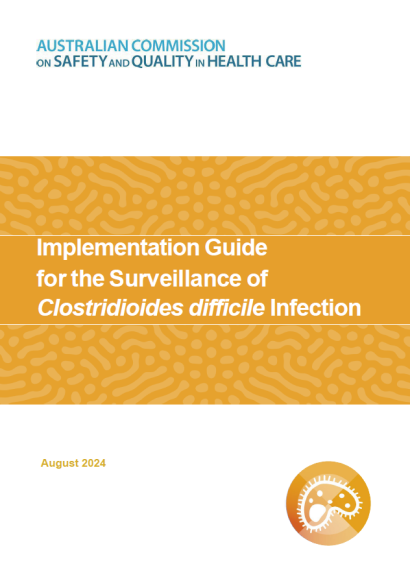2024
Guide, user guide or guidelines
This guide supports Australian health service organisations to implement surveillance of hospital-identified Clostridioides difficile infection (CDI) and contribute to national reporting. Criterion B1 of the CDI case definition was updated in August 2024 to include testing for CDI toxin gene(s) and ensure consistency with the current Public Health Laboratory Network CDI laboratory case definition.

